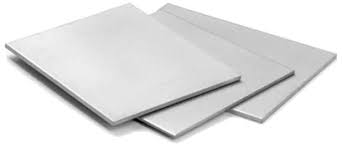Why are aluminium sheets widely used in the automotive industry?
The automotive industry has undergone a remarkable transformation over the past few decades. As manufacturers strive to create vehicles that are lighter, stronger, and more fuel-efficient, aluminium sheets have become a preferred material choice. Whether it’s for body panels, engine parts, or interior components, aluminium offers numerous advantages that make it a vital part of modern vehicle design. In regions like Singapore, where innovation and quality drive the industrial market, aluminium sheet Singapore suppliers play a crucial role in supporting the automotive and manufacturing sectors. Alongside this, Stainless Steel Singapore also contributes to high-quality and durable vehicle components. However, when it comes to weight reduction and performance, aluminium sheets often take the lead.
Lightweight Nature of Aluminium Sheets
One of the main reasons aluminium sheets are extensively used in the automotive industry is their lightweight nature. Aluminium is about one-third the weight of steel, which makes it an excellent material for reducing a vehicle’s overall mass. Lightweight vehicles consume less fuel and produce fewer emissions, helping car manufacturers meet stringent environmental regulations. The use of aluminium sheet Singapore has become increasingly popular among local automotive manufacturers aiming to design energy-efficient vehicles without compromising on safety or performance.
Reducing a vehicle’s weight improves its acceleration, braking, and handling. In electric vehicles (EVs), a lighter body allows for longer battery life and improved range, which is essential in today’s eco-conscious world. Therefore, aluminium sheets not only enhance performance but also support the shift toward sustainable transportation solutions.
High Strength-to-Weight Ratio
Despite being lightweight, aluminium has a high strength-to-weight ratio, making it perfect for automotive applications. When alloyed with other metals like magnesium or silicon, aluminium sheets become even stronger and more durable. This property ensures that vehicles can maintain structural integrity while minimizing weight. In contrast, while Stainless Steel Singapore products are known for their exceptional strength and corrosion resistance, they are heavier than aluminium and therefore less suitable for applications where weight reduction is critical.
Modern car bodies rely on aluminium sheets to maintain crash safety standards while allowing engineers to optimize the car’s weight distribution. This balance between strength and lightness is a major reason why aluminium is used in doors, hoods, trunk lids, and even chassis components.
Corrosion Resistance and Longevity
Aluminium naturally forms a protective oxide layer when exposed to air, which prevents rust and corrosion. This characteristic makes aluminium sheets highly durable, even when used in harsh environments. In countries like Singapore, where humidity levels are high, corrosion resistance is a key factor in material selection. As a result, aluminium sheet Singapore products are favored by automotive manufacturers for their ability to withstand tropical weather conditions and maintain a polished, long-lasting finish.
While Stainless Steel Singapore also offers corrosion resistance, aluminium’s lighter weight gives it an edge for specific automotive applications. The use of aluminium ensures that vehicles not only remain visually appealing but also structurally sound for many years.
Excellent Malleability and Design Flexibility
Another reason aluminium sheets are so popular in automotive manufacturing is their exceptional malleability. Aluminium can be easily shaped, bent, or stamped into complex forms without cracking or losing strength. This makes it ideal for designing intricate car body panels, aerodynamic shapes, and detailed trims.
Automotive designers appreciate the versatility of aluminium sheets because it allows them to experiment with innovative shapes that improve both aesthetics and aerodynamics. In Singapore, where advanced manufacturing technology is a growing industry, aluminium sheet Singapore suppliers often provide customized sheets tailored for specific vehicle designs, enabling local manufacturers to maintain global standards of precision and creativity.
Superior Heat and Energy Efficiency
Aluminium is also a great conductor of heat, which makes it suitable for components like radiators, heat exchangers, and engine parts. Its ability to dissipate heat quickly helps maintain optimal engine temperatures, enhancing overall vehicle performance and efficiency.
In electric and hybrid vehicles, aluminium sheets are increasingly used for battery enclosures because of their thermal management properties. This ensures that batteries remain cool and operate efficiently, which is essential for safety and energy conservation. Compared to Stainless Steel Singapore products, aluminium offers better thermal conductivity while keeping the overall structure lightweight.
Recyclability and Sustainability
Sustainability has become a key focus in modern manufacturing, and aluminium stands out as a highly recyclable material. Recycled aluminium retains its strength and quality, making it an environmentally friendly choice for car production. Reusing aluminium consumes only about 5% of the energy required to produce new material, which significantly reduces carbon emissions.
The automotive industry’s shift toward eco-friendly materials aligns with global sustainability goals, and aluminium sheet Singapore suppliers are responding to this demand by offering recycled and responsibly sourced aluminium products. This approach supports a circular economy where resources are reused efficiently, minimizing waste and environmental impact.
Cost-Effectiveness Over Time
Although aluminium sheets can be more expensive than steel at the initial purchase stage, they prove to be cost-effective in the long run. Their durability, corrosion resistance, and recyclability lower maintenance and replacement costs. Additionally, lighter vehicles consume less fuel, leading to long-term savings for both manufacturers and consumers.
Many automotive brands in Singapore recognize the economic benefits of using aluminium over heavier metals. By investing in aluminium sheet Singapore materials, they ensure long-lasting performance, reduced operational costs, and improved fuel efficiency—all of which enhance customer satisfaction.
Conclusion
In conclusion, aluminium sheets have become a cornerstone of modern automotive engineering due to their lightweight, durable, and sustainable properties. From enhancing vehicle performance to supporting environmental goals, aluminium offers unmatched advantages over traditional materials. While Stainless Steel Singapore remains important for specific applications requiring high strength and durability, aluminium sheets dominate areas where weight, efficiency, and flexibility are crucial.













